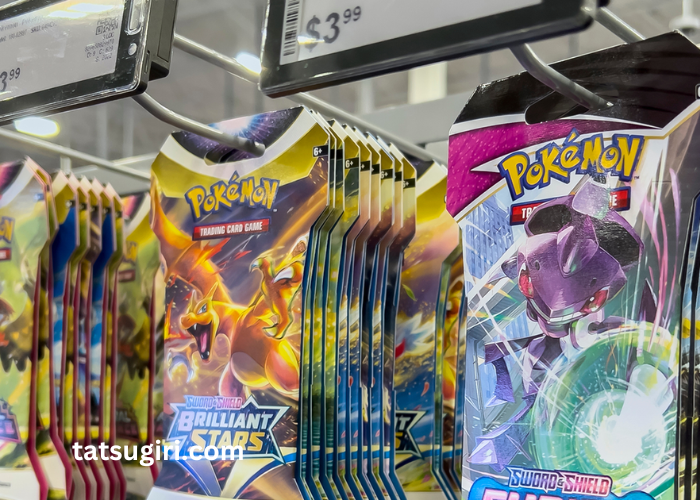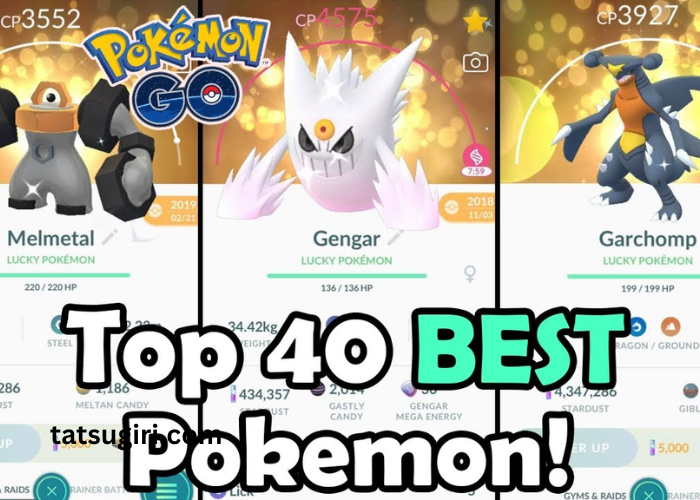Selling Pokémon cards can be a rewarding endeavor, whether you’re clearing out a collection or seeking profit from rare finds. With numerous options available, from local stores to online platforms, finding the right place to sell your cards can make a significant difference.
This guide will help you navigate your choices and find the best places to sell Pokémon cards near you.
Where Can I Sell Pokémon Cards Locally?
Local game stores, comic shops, and hobby shops are excellent places to start when selling Pokémon cards. These stores often have knowledgeable staff who can assess the value of your cards and offer competitive prices. Additionally, they may have regular customers who are interested in buying or trading cards.
How Do Online Marketplaces Help in Selling Pokémon Cards?
Online marketplaces provide a powerful platform for selling Pokémon cards, offering several advantages that can enhance your selling experience. Here’s a detailed process on how these platforms can assist you:
1. Wide Audience Reach
- Global Exposure: Online marketplaces like eBay, TCGPlayer, and Facebook Marketplace allow you to reach a vast audience of potential buyers from around the world. This increases the chances of selling your cards quickly and at a good price.
- Targeted Buyers: These platforms attract collectors and enthusiasts specifically interested in Pokémon cards, improving the likelihood of finding serious buyers.
2. Variety of Selling Options
- Auction Listings: Many online marketplaces offer auction-style listings where buyers place bids on your cards. This can drive up the price if there is strong interest in your cards.
- Fixed-Price Listings: Alternatively, you can list your cards at a fixed price, providing more control over the sale. This is useful if you have a specific price in mind and want to avoid the bidding process.
3. Tools for Pricing and Valuation
- Price Comparison: Online marketplaces provide tools for comparing prices of similar cards, helping you set competitive prices based on current market trends.
- Market Trends: These platforms often feature historical sales data and trends, offering insights into how your cards are valued over time.
4. Enhanced Visibility and Promotion
- Search Features: Listings on online marketplaces are searchable, making it easier for buyers to find your cards. Using relevant keywords and tags can improve your card’s visibility.
- Promotional Tools: Some platforms offer promotional tools or features to highlight your listings, such as featured listings or sponsored ads, which can increase exposure.
5. Secure Transactions
- Payment Protection: Many online marketplaces provide secure payment processing, protecting both buyers and sellers from fraud. This includes options for secure payment methods like PayPal or credit card transactions.
- Buyer and Seller Protections: Platforms like eBay offer protections for both buyers and sellers, such as money-back guarantees and dispute resolution services, ensuring a safer transaction process.
6. Convenient Shipping and Handling
- Integrated Shipping Solutions: Online marketplaces often integrate with shipping carriers, providing tools to calculate shipping costs and print labels directly from the platform.
- Tracking Information: You can provide buyers with tracking information, allowing them to monitor their purchase and reducing the risk of disputes.
7. Detailed Listings and Descriptions
- High-Quality Listings: These platforms allow you to create detailed listings with high-resolution photos and comprehensive descriptions of your cards. This helps buyers make informed decisions and increases the chances of a sale.
- Condition Reports: Including detailed condition reports and noting any unique features or flaws in your card descriptions can build trust with potential buyers.
8. Community and Support
- Community Interaction: Online marketplaces often have forums or community groups where you can engage with other sellers and buyers, share tips, and get feedback.
- Customer Support: These platforms provide customer support to help with any issues related to listing, transactions, or disputes, ensuring a smoother selling experience.
By leveraging the features and advantages of online marketplaces, you can effectively sell your Pokémon cards, reach a broader audience, and ensure a secure and efficient transaction process.
What Are the Advantages of Selling at Consignment Shops?
Consignment shops allow you to display your Pokémon cards in a retail environment without the need to handle transactions directly. The shop takes a commission on sales, but you benefit from their customer base and marketing efforts. This can be a convenient option if you prefer not to manage the selling process yourself.
How Can Trading Events Be Used for Selling Pokémon Cards?
Trading events, such as Pokémon card shows and conventions, offer opportunities to sell cards directly to enthusiasts and collectors.
These events often attract serious buyers and provide a chance to showcase your cards in person. Check local event listings to find opportunities near you.
What Factors Should I Consider When Pricing My Pokémon Cards?
Pricing Pokémon cards involves considering their rarity, condition, and market demand. Research recent sales of similar cards on platforms like eBay and TCGPlayer to determine a competitive price. Be prepared to negotiate with buyers, especially in local settings.
How Do I Prepare My Pokémon Cards for Sale?
Preparing your Pokémon cards for sale involves several key steps to ensure they are in the best possible condition and presented effectively to potential buyers. Here’s a comprehensive process to help you prepare your cards:
1. Organize Your Collection
- Sort Cards: Begin by sorting your cards into categories such as set, rarity, and condition. This makes it easier to manage and price them accurately.
- Identify Key Cards: Highlight rare or valuable cards that may attract more interest. Special cards, such as holographic or first editions, should be given particular attention.
2. Assess Card Condition
- Examine Condition: Check each card for any signs of wear or damage, such as scratches, bends, or faded print. The condition greatly impacts the card’s value.
- Grade Cards: Use a grading scale (e.g., Mint, Near Mint, Excellent) to describe the condition of your cards. You can also consider professional grading services if you have high-value cards.
3. Clean and Protect Cards
- Clean Gently: If necessary, gently clean the cards using a soft, dry cloth to remove dust or fingerprints. Avoid using any liquids or abrasive materials that might damage the cards.
- Use Card Sleeves and Toploaders: Place each card in a protective sleeve and, if possible, in a Toploader for additional protection. This helps preserve the card’s condition and makes it more appealing to buyers.
4. Create an Accurate Inventory
- Document Details: Create a detailed inventory of your cards, including descriptions, conditions, and any relevant details such as set names or special attributes.
- Take High-Quality Photos: Use a high-resolution camera or smartphone to take clear, well-lit photos of each card. Include close-up shots of valuable cards and any unique features.
5. Set Competitive Prices
- Research Market Prices: Look up recent sales of similar cards on platforms like eBay, TCGPlayer, or other marketplaces to determine a competitive price.
- Consider the Rarity and Condition: Adjust your prices based on the card’s rarity and condition. Rare cards in excellent condition can command higher prices.
6. Prepare for Sale
- Choose a Selling Platform: Decide where you want to sell your cards, whether it’s through local game stores, online marketplaces, or trading events.
- Prepare Descriptions: Write clear and detailed descriptions for each card, highlighting its condition, rarity, and any special features. Accurate descriptions help attract serious buyers.
7. Pack Cards Securely
- Package Carefully: If selling online, package your cards securely to prevent damage during shipping. Use bubble wrap and a sturdy envelope or box to protect the cards.
- Include Tracking: For online sales, provide tracking information to the buyer to ensure they receive their purchase and to build trust.
8. Communicate with Buyers
- Respond Promptly: Be responsive to inquiries from potential buyers. Clear communication helps build trust and can lead to quicker sales.
- Negotiate Fairly: Be open to negotiation but ensure that any agreed prices reflect the value of your cards and cover any selling fees.
By following these steps, you can prepare your Pokémon cards effectively for sale, ensuring they are presented well and positioned to attract potential buyers.
What Are the Risks of Selling Pokémon Cards Online?
Selling Pokémon cards online comes with risks such as scams and fraudulent transactions. Protect yourself by using secure payment methods and thoroughly vetting buyers. Platforms like eBay offer buyer and seller protection, which can help mitigate these risks.
How Can I Market My Pokémon Cards Effectively?
Effective marketing involves using high-quality photos and detailed descriptions of your cards. Highlight rare and valuable cards, and consider using social media to reach potential buyers. Engaging with Pokémon card communities online can also increase visibility.
Final Thoughts
Selling Pokémon cards near you involves a range of options from local stores and consignment shops to online platforms and trading events.
By understanding your choices and preparing your cards properly, you can maximize your chances of getting a good deal. Whether you choose to sell locally or online, being informed and proactive will help you navigate the process successfully.
Comparison Chart
| Selling Option | Advantages | Disadvantages |
| Local Game Stores | Immediate sales, knowledgeable staff | Limited customer base |
| Online Marketplaces | Broad audience, various selling options | Risk of scams, shipping concerns |
| Consignment Shops | Retail environment, minimal effort | Commission fees, less control over sales |
| Trading Events | Direct access to buyers, high exposure | Event-specific limitations |
Note/Reminder
- Always check the condition of your Pokémon cards before selling to ensure you’re providing accurate descriptions to buyers.
- Stay aware of the fees associated with different selling platforms and factor them into your pricing strategy.
FAQ’s
-
Where can I find local stores to sell Pokémon cards?
Check game stores, comic shops, and hobby stores in your area.
-
How can I sell Pokémon cards online safely?
Use secure payment methods and platforms with buyer and seller protections like eBay.
-
What should I consider when pricing Pokémon cards?
Consider rarity, condition, and recent market sales to set a competitive price.
-
Are there any risks associated with selling Pokémon cards at consignment shops?
Consignment shops take a commission on sales and may limit your control over the selling process.
-
How can I market my Pokémon cards effectively?
Use high-quality photos, and detailed descriptions, and leverage social media and Pokémon card communities.



